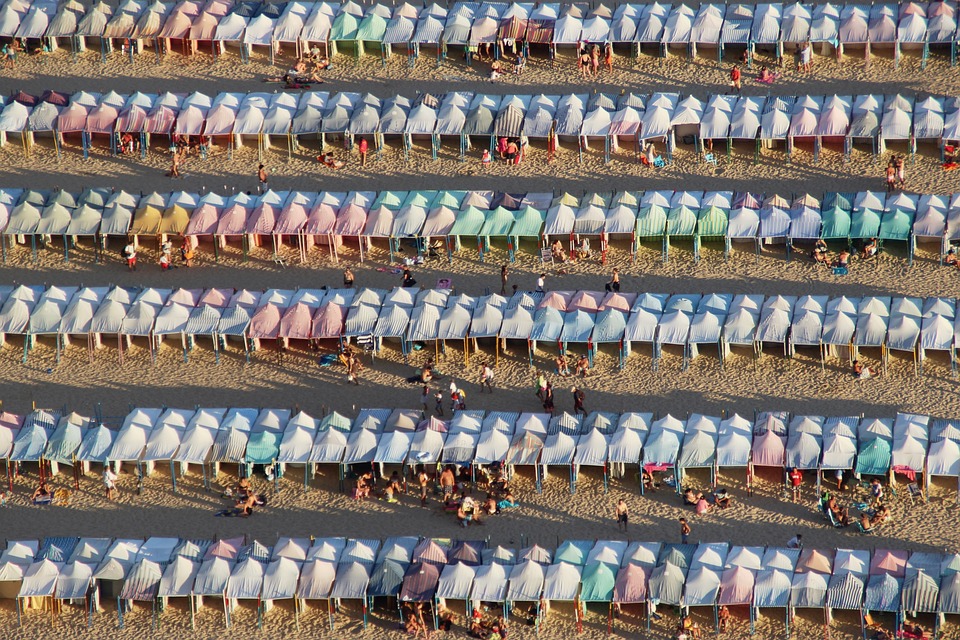Table of Contents
Introduction
When it comes to camping, having the right gear can make all the difference in creating a memorable outdoor adventure. Whether you’re a seasoned camper or a novice explorer, having the essential camping gear will not only provide convenience but also ensure your safety and comfort under the stars.
Tents and Sleeping Gear
A reliable tent is the most critical piece of camping gear. It protects you from the elements, bugs, and provides a comfortable place to sleep. Look for a tent that suits your needs, including considerations like size, weight, and weather resistance. Additionally, investing in a high-quality sleeping bag and sleeping pad will ensure a good night’s rest during your outdoor adventure.
Cooking Equipment
No camping trip is complete without enjoying some delicious meals. While traditional campfire cooking can be fun, having the right cooking equipment makes the entire experience more convenient. A portable stove with fuel, cookware, utensils, and a cooler or portable fridge are essential for preparing and storing food. Don’t forget to pack plenty of water and a water filtration system for hydration.
Lighting
Proper lighting is crucial for any camping trip, especially during the dark hours. A reliable flashlight or headlamp will help you navigate the campsite and find your way through trails or paths. Lanterns or string lights can create a cozy atmosphere for evening gatherings and prevent accidents by illuminating the surroundings.
Camp Furniture
While camping is often associated with ruggedness, having comfortable camp furniture can greatly enhance your experience. Folding chairs, a portable table, and a hammock offer a cozy place to relax and enjoy the scenic surroundings. Additionally, a camping mat or rug can add comfort to your tent’s interior, especially during colder nights.
First Aid Kit and Safety Equipment
Being prepared for unexpected situations is paramount in the outdoors. A well-stocked first aid kit, including bandages, antiseptic wipes, pain relievers, and any necessary personal medications, should always be on your camping gear list. Additionally, don’t forget to bring safety equipment such as a whistle, a fire extinguisher, and a multi-tool that may come in handy for various situations.
Clothing and Personal Essentials
Proper clothing and personal essentials play a significant role in ensuring your comfort during the camping trip. Layered clothing is ideal to adapt to changing weather conditions. Pack appropriate outerwear, including rain gear and sturdy hiking boots. Don’t forget essentials like sunscreen, insect repellent, a hat, and sunglasses to protect yourself from the sun and bugs.
FAQs
Q: How do I choose the right tent?
A: When choosing a tent, consider the number of people it should accommodate, the season(s) you’ll be camping in, and the amount of storage space you need. Look for a tent that offers easy setup, durability, good ventilation, and enough waterproofing for your camping conditions.
Q: How do I ensure food safety while camping?
A: To ensure food safety, pack perishable items in a cooler with ice packs or use a portable fridge to store them at safe temperatures. Keep raw meat separated from other food items and ensure proper cooking temperatures. Always follow hygiene practices, such as using clean utensils and washing hands before handling food.
Q: Do I need a specific type of sleeping bag for camping?
A: Sleeping bags come in various types, including summer, three-season, and winter bags. Choose a sleeping bag suitable for the temperature range you anticipate during your camping trips. Consider factors like insulation material, temperature rating, weight, and packability to find the right sleeping bag for your needs.
Q: What should I pack in a first aid kit for camping?
A: A well-stocked camping first aid kit should include bandages, adhesive tapes, antiseptic wipes, pain relievers, tweezers, scissors, moleskin for blister relief, and any necessary personal medications. Additionally, consider including items like a CPR mask, emergency blanket, and a first aid manual.
Q: How can I best protect myself from bugs while camping?
A: To protect yourself from bugs, use insect repellent, preferably with ingredients such as DEET or picaridin. Wear long sleeves and pants during peak bug activity times. Consider using mosquito nets around your sleeping area and keeping tent windows closed. It’s also helpful to avoid camping near standing water or dense vegetation.




